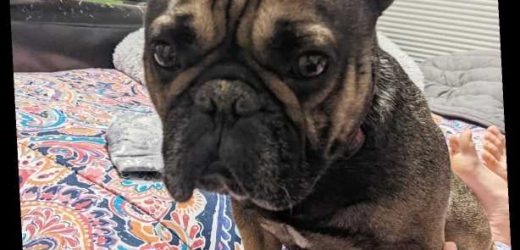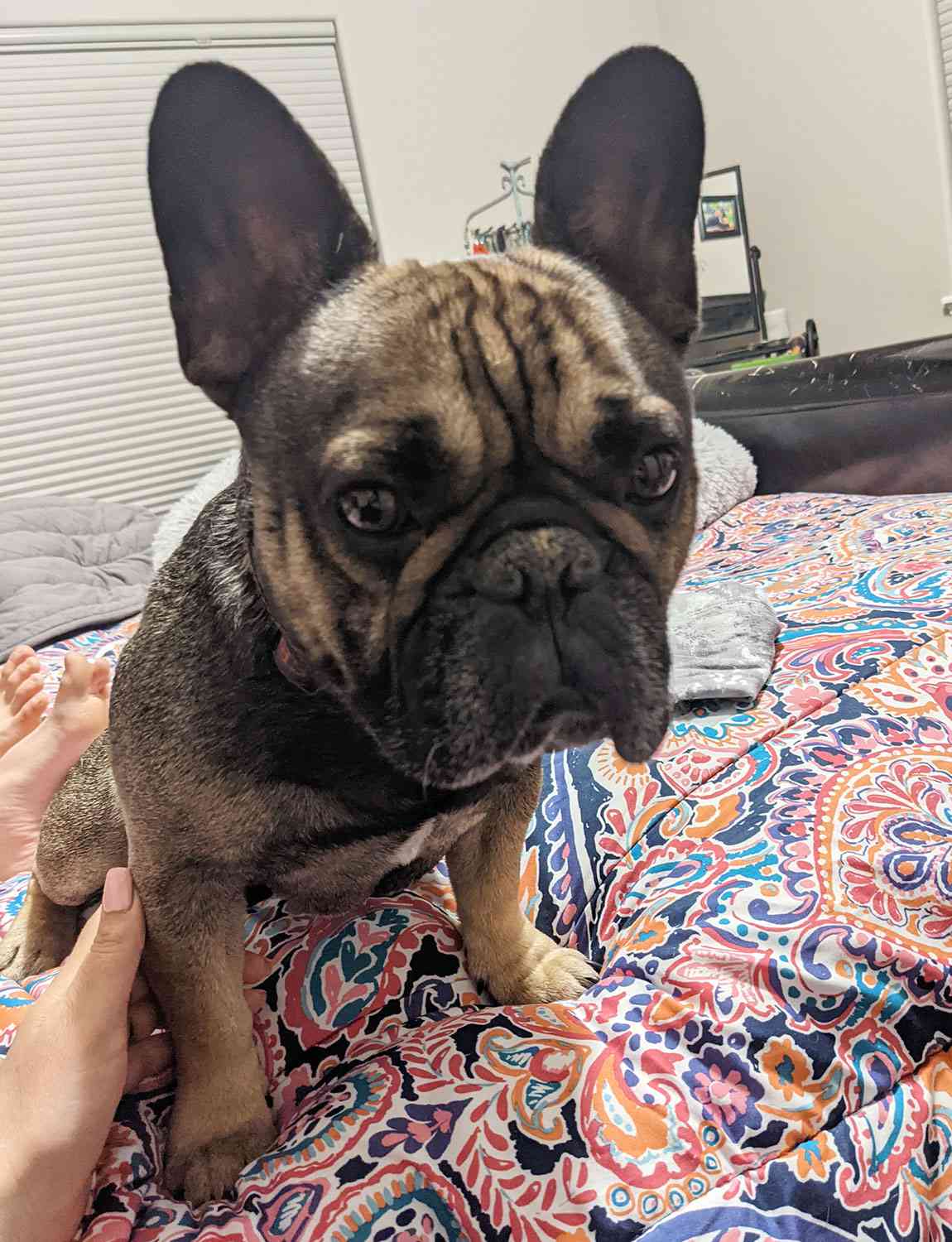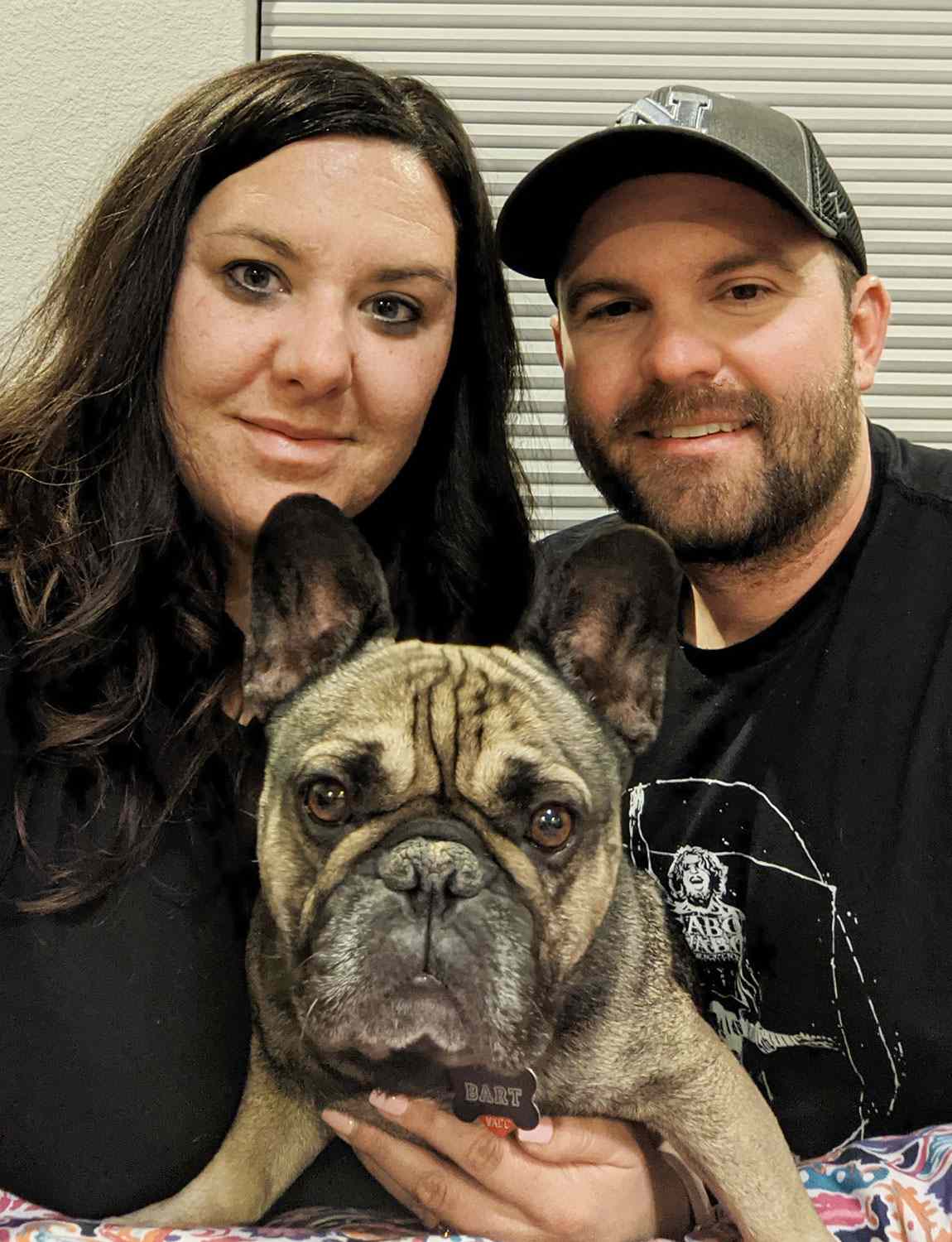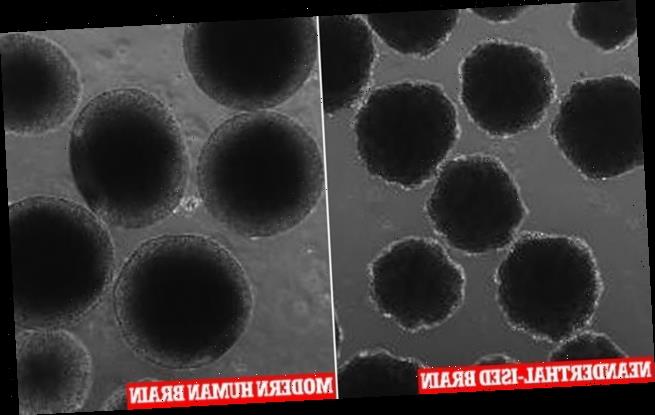Bart, a 5-year-old French bulldog, jumped off the couch on Thanksgiving Day 2020. A few hours later, he suddenly started panting, dragging his back legs and spinning in circles.
"We were like, 'Oh no,'" Bart's owner, Tami Promes, a 34-year-old program manager who lives in Timnath, Colorado, told PEOPLE. "We were having flashbacks scared to death that we already knew what it was."
Last July, Annie, the family's beloved 15-year-old Peek-A-Pom (a Pomeranian and Pekingnese mix), jumped off the couch and then suddenly started panting and losing control of her back legs. Annie had injured her spine from the jump, so Promes knew right away that Bart likely had a spinal injury too.
By 4:30 a.m. Bart was crying in pain and couldn't sleep — so Promes's husband Tyler, a 34-year-old lineman for the city of Fort Collins Light and Power, took the dog to an emergency vet, who diagnosed the Frenchie with a herniated disc.
"He didn't really have any feeling in the back of his legs and his toes," Promes said. "They said at any point if he lost all feeling, then he would be paralyzed forever. There was no going back."
The emergency vet recommended surgery, which they estimated would cost around $10,000. Bart did not have pet insurance to help cover the expensive operation.
"We were devastated," Promes said. "$10,000 is almost a full year of house payments, or a car for our kid that's going to be driving, or money to put toward college. But at the same time, Bart is only 5."
When her 15-year-old dog was injured and got worse, she told herself Annie had a good, long life and made the difficult decision to say goodbye. But she couldn't bring herself to have Bart, a robust, young dog, put down.
"I kept saying, 'He's only 5. He's only 5. He still has life to live,'" Promes recalled.
Veterinarians said they could wait and hope that Bart got better on his own — but he might get worse. The expensive surgery was Bart's best option for recovery.
"Bart is a badass," Promes said of the pooch her family welcomed in November 2019. "He is straight-up muscle. He looks like a star. We just moved to this neighborhood, and everybody knows us, everybody loves Bart. He's the star of our family. We were devastated. Bart was so strong, and now he might not be able to walk again? How are we going to afford this? There's no way."
Bart's family asked the emergency vet how much time they had to make a decision, and the vet said the canine could irreversibly lose all sensation in his back legs at any moment.
The weekend after the accident, Bart went for a few Hyperbaric Oxygen Therapy (HBOT) treatments and took pain medication and steroids to help treat his injuries while his family decided what to do. On Dec. 2, they took Bart to his regular veterinarian for a second opinion.
"She said, 'You guys need to decide now,'" Promes said. "You don't have time."
: Mini Horse Walks Again Thanks To Wheelchair
That afternoon Promes called a dozen veterinary surgeons getting quotes from Denver to Colorado Springs. Colorado State University's Veterinary Teaching Hospital in Fort Collins was the least expensive, quoting her $6,000-7,000 for the surgery.
"We said, 'We have to do it,'" Promes says. "He has so much life to live. We love him so much."
Bart was admitted that day.
While waiting in the parking lot of the animal hospital ahead of Bart's surgery, Promes received a phone call inviting Bart to participate in a clinical trial for a less-invasive endoscopic surgery, which would mean less cutting, and hopefully less pain, to repair Bart's herniated disc.
"The surgeon explained it to me like a jelly doughnut that had been squeezed and compressed and all the jelly spewed out everywhere," the owner said, "They were going to go in and clean out all those pieces of the disc — or jelly — then sew him back up."
Promes were offered a $2,500 credit towards the surgery's cost if Bart participated in the trial for the less-invasive technique. Additionally, if Bart's family chose to participate, the dog would also receive a pre-op MRI and a post-op MRI, at no cost to the owners, to make sure everything was cleaned up — and if not, the veterinary surgeons would go back and fix it.
"We were already freaking out about the price," Promes said of the offer. "It was like a little baby miracle."
"Bart was exactly the perfect patient," said Bart's surgeon Lisa Bartner, a faculty neurologist at the Colorado State University Veterinary Teaching Hospital. Herniated discs are very common in French bulldogs and other breeds with short legs and long backs.
"Essentially, by the time they're a year of age, they have the back of a 12-year-old dog," the doctor added.
Promes agreed to try the less invasive surgery and Bart went into the operating room on Dec. 4. The surgery went well with the Frenchie spent just four days recovering in the hospital.
Now home, Bart does physical therapy exercises and has resumed snuggling and playing with his sister, a 7-month-old Frenchie named Lulu.
"He's doing amazing," Promes shared. "He can walk. He can run."
Sometimes when out on a walk, Bart will jump both his back legs together instead of moving them separately, which Bartner says is totally normal — full recovery will probably take six months.
"The spinal cord gets damaged very quickly, but it doesn't heal very fast. It's a long recovery," Bartner said. "But he's made dramatic, tremendous improvement. I have high hopes for him … with his demeanor and his motivation he will make a full recovery."
Promes, who ended up paying around $5,000 on medical bills for all of Bart's care, is so happy he's back home and healing.
"He would have gotten worse and not better — and, honestly, I don't know if the pain ever would have gone away," she said. "The surgery is totally worth it. Bart's life — and our life — would have been totally different if we didn't get it. I'm so happy we did."
Source: Read Full Article






